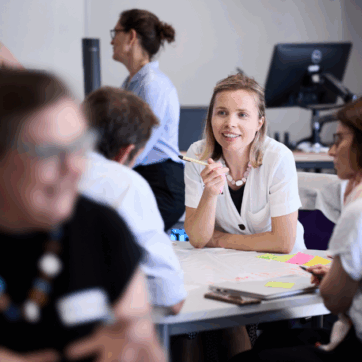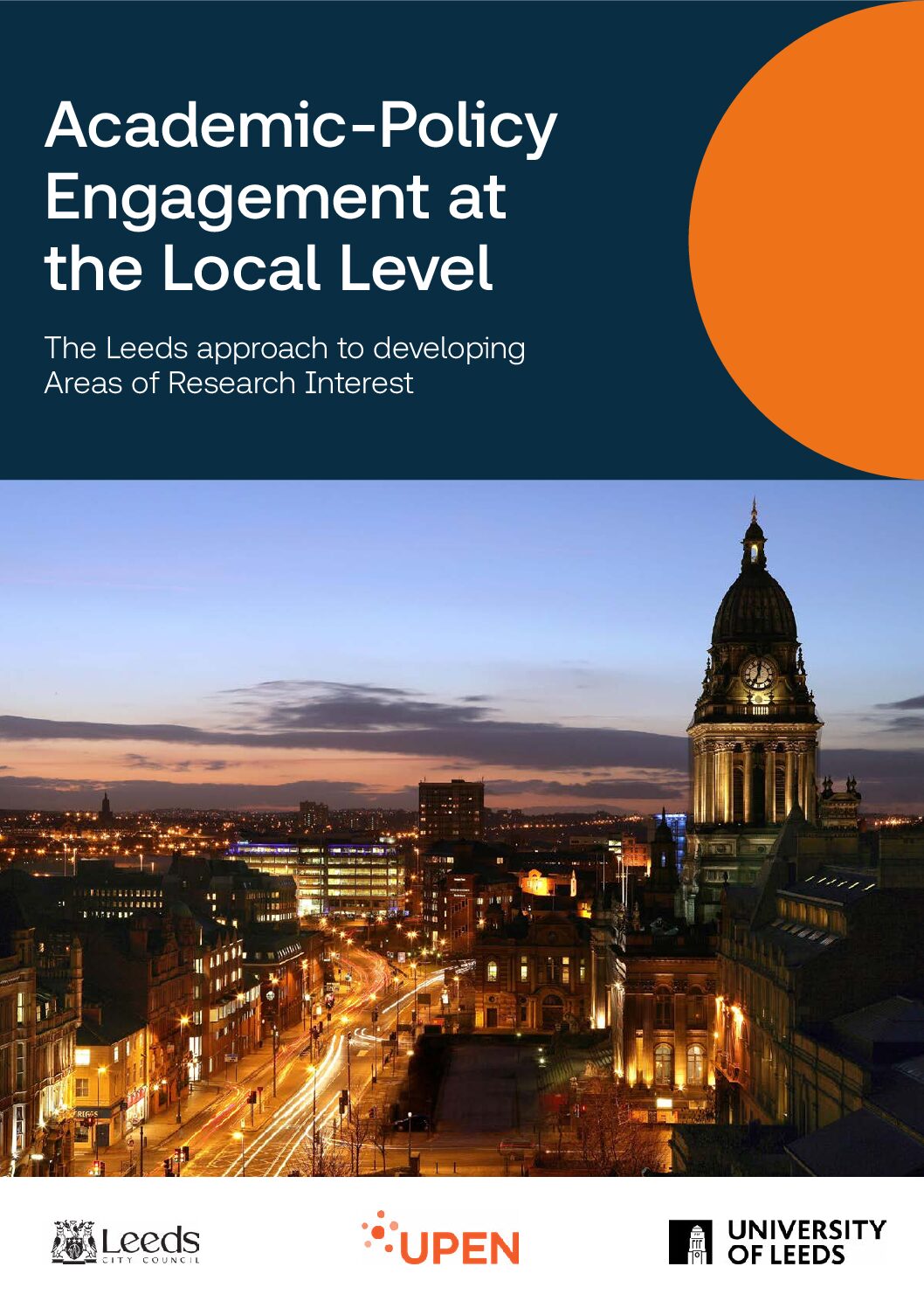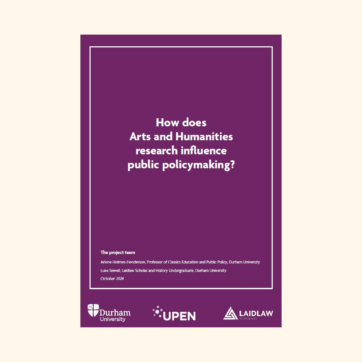I am over seven months into my CAPE Policy Fellowship at the University of Nottingham to support local digital skills and it feels like a good time to reflect on whether the role has so far delivered what I was hoping to get out of it. My expectations at the outset can be summarised as:
- Hoping to achieve ‘on the ground’ impact.
- Experiencing a different working environment.
- Building closer links with the research community.
In this blog I will explore each of these in turn and reflect on the learning I hope to take from the fellowship into future roles.
‘On the Ground’ Impact
In the 12 years that I’ve worked in the Civil Service, I have moved from working on international policy in the Department for International Development (DFID) to a focus on local economic policy in the UK, with my most recent role in the Department for Levelling Up, Housing and Communities (DLUHC) very heavily concentrated on local economic growth funding. One of the compromises of working in central government is that you can feel a few steps removed from the impact of your work, so for me this CAPE fellowship was an opportunity to see whether working on a project which was embedded in a specific local community might make me feel more closely connected to real world impact.
I’m pleased to say that this really has felt like the case in Nottingham. Working as a policy generalist in government can sometimes feel like being a ‘Jack of all trades’; so it’s been rewarding to realise that over those years I have been building up specific skills in developing policy, which can be applied to achieving tangible impact at a local level. For example, as a civil servant, bringing different stakeholders together is a big part of the job. In Nottingham I have successfully brought together a network from the private, public and third sectors to deliver a digital skills project which looks likely to outlive the timespan of the fellowship. This achievement has also helped me to realise how important that direct connection to impact is for me personally, so in future looking for projects where I can point to specific, tangible outputs will be a big box to tick.
“I have no doubt that the perspective I’ve gained by committing to spending a significant chunk of time in a different environment has given me renewed passion, clarity, and confidence to take forward into the next phase of my career. I also feel that I can credibly claim to have made a positive contribution to the University and local community in this role.”
Laura Koch, CAPE Policy Fellow
Different Working Environment
I’m fairly sure that when I look back on my time at the University of Nottingham, I will think first of walking round the glorious Highfields Park at the University Park Campus in different seasons. I hasten to add that I haven’t just spent seven months walking round campus. However, for me the experience of being in this new physical environment has been symbolic of the wider experience of a different working culture and the headspace and time for reflection that this has allowed. There is unsurprisingly a strong culture of empowerment and self-motivated working within a university, with an emphasis on managing your own time and workload. I’ve also noticed a tendency towards being open and receptive to new ideas. There can be downsides to this flexibility, and there have been times where I’ve lamented the lack of clarity and pace that can be driven by a clear hierarchy and a tight deadline. However, I would be keen to build the creative and innovative culture that I’ve experienced at Nottingham into future teams.
I’ve also really benefitted from my interactions with a range of people from different organisations and community groups in Nottingham. In a region with high levels of poverty and deprivation it has been genuinely inspirational to meet so many people who are committed to quietly getting on with doing their bit to make this great city even greater. So once again, plenty to reflect on in terms of what motivates me personally in a work environment. I will certainly be making a commitment to keep that connection to the local community in whatever roles I take on in future.
Links with the Research Community
I absolutely jumped at the chance to apply for the incoming fellow scheme when I was working in DLUHC, and it is not a great surprise to me that I’ve ended up becoming an outgoing fellow as well. I’ve always described myself as a ‘wannabe analyst’ in the Civil Service, inclined towards working with analysts to understand the evidence base as much as possible. I also worked as an Evidence Broker in DFID, a role that was focused on bridging the gap between research and policy.
Because of this background, for me access to the CAPE network has been a huge bonus of the two fellowships. It was at a CAPE event that I became aware of the opportunity to apply for this fellowship in Nottingham. Through CAPE I have become aware of other initiatives to connect policy and research, such as the Universities Policy Engagement Network and the Civic University Network. As a DLUHC official I have been really interested to be party to conversations about how universities can most effectively play a civic role, and I am already in the process of feeding some of this thinking and learning back into the department.
What Next?
Writing this blog has reiterated for me that this fellowship has delivered everything I’d hoped for and more. In terms of my own personal development, I have no doubt that the perspective I’ve gained by committing to spending a significant chunk of time in a different environment has given me renewed passion, clarity, and confidence to take forward into the next phase of my career. I also feel that I can credibly claim to have made a positive contribution to the University and local community in this role. I am grateful to both CAPE and DLUHC for the opportunity of taking on this fellowship as a secondment, and hope to continue to stay connected to the CAPE team as I move on to future roles.
For anyone thinking of applying for a similar fellowship, I would really encourage you to go for it. Understanding theoretical approaches to improving the join up between policy and research is very different from experiencing the culture of working within a university, learning about the day-to-day pressures faced by researchers and the incentives that might encourage different ways of working, particularly the centrality of research funding in shaping priorities and activities. In order to really cement stronger connections between the policy and research communities, such insights are an invaluable way of ensuring that we’re all speaking the same language and jointly committed to delivering improved outcomes.
About CAPE
Capabilities in Academic Policy Engagement (CAPE) is a knowledge exchange and research project funded by Research England from 2020-2024, which has been exploring how to support effective and sustained engagement between academics and policy professionals. The project is a partnership between UCL and the Universities of Cambridge, Manchester, Northumbria and Nottingham in collaboration with the Government Office for Science, the Parliamentary Office for Science and Technology, Nesta and the Transforming Evidence Hub.
About CAPE case studies
CAPE case studies have been written by academics and policy partners on the CAPE project as reflections on their experience of undertaking academic policy engagement. The case studies include explorations of academic placements in policy organisations and vice versa (called Policy Fellowships), partnerships between universities and policy organisations, and collaborative projects between academics and policy partners.


